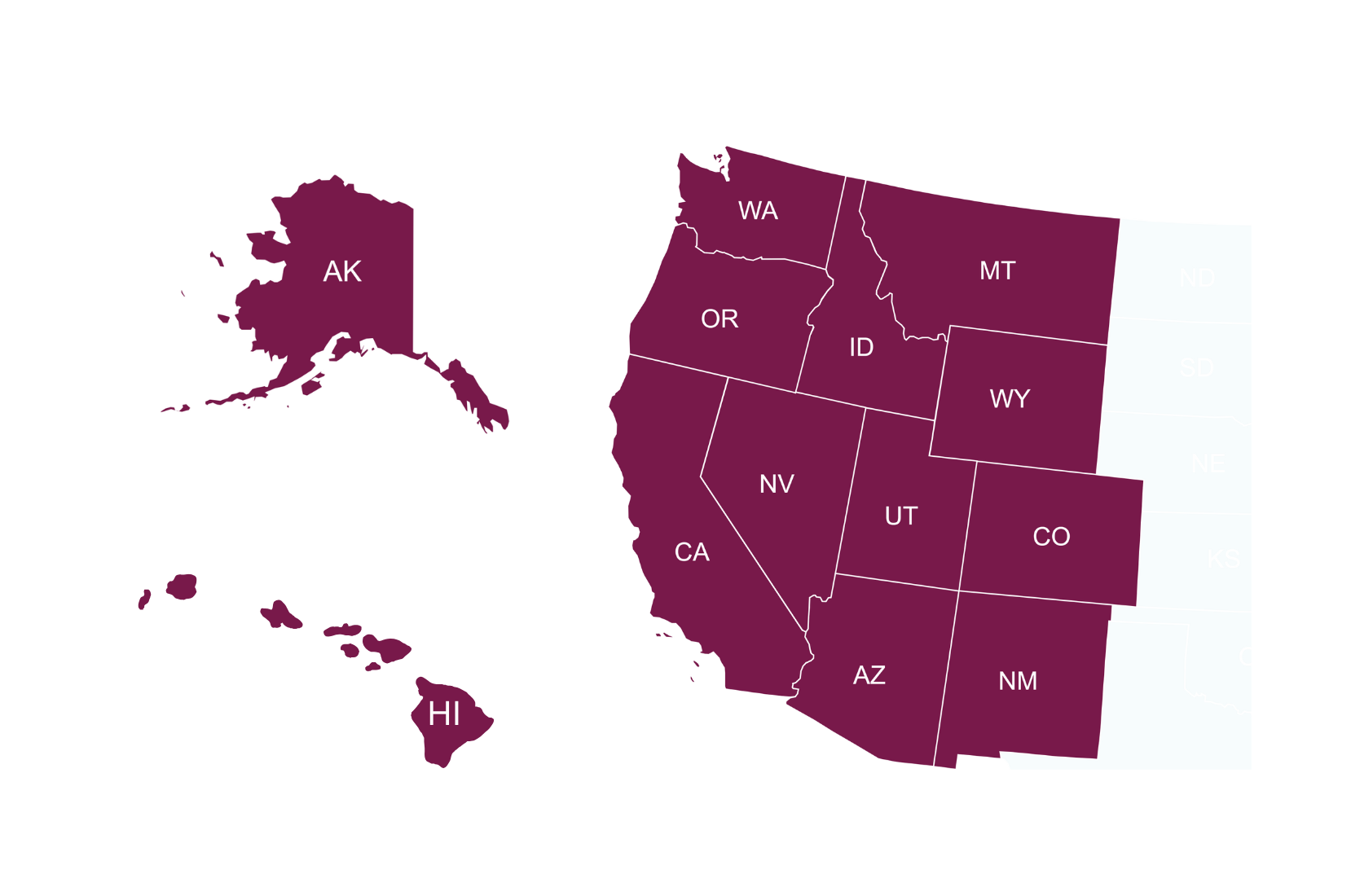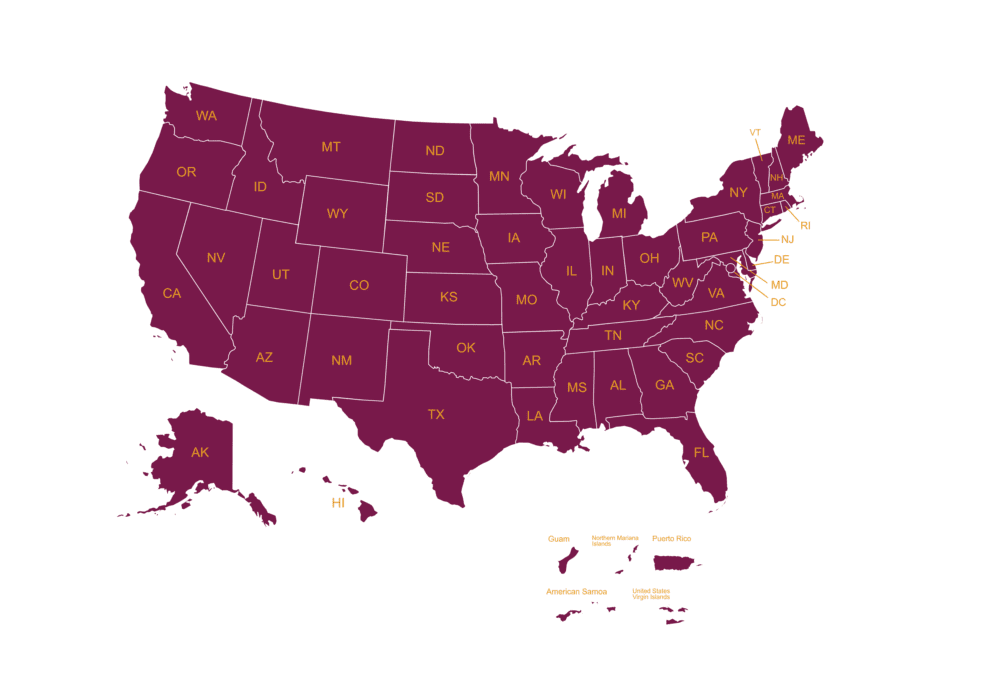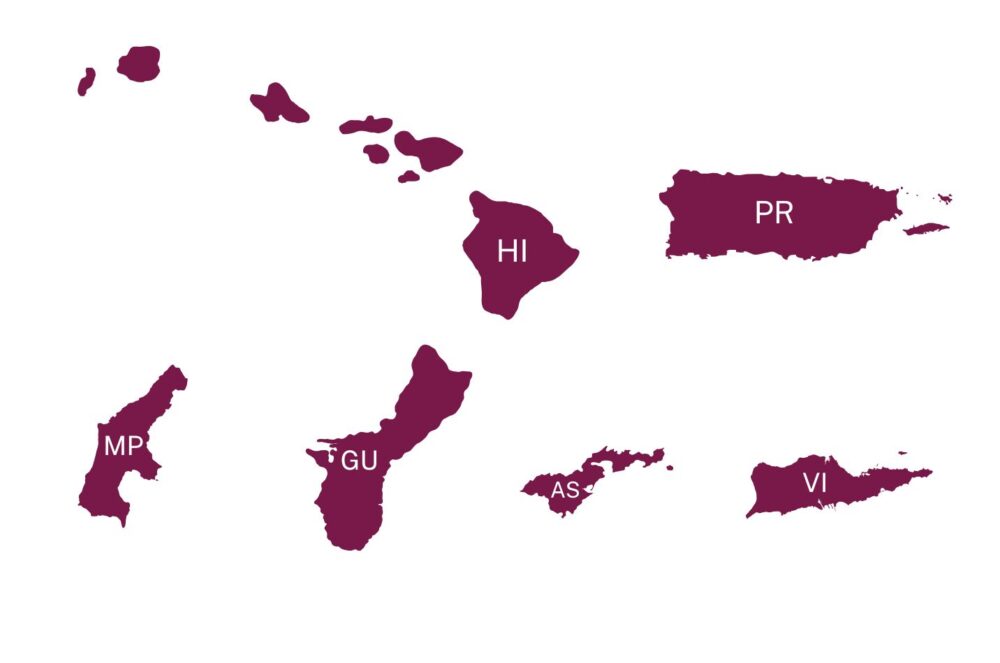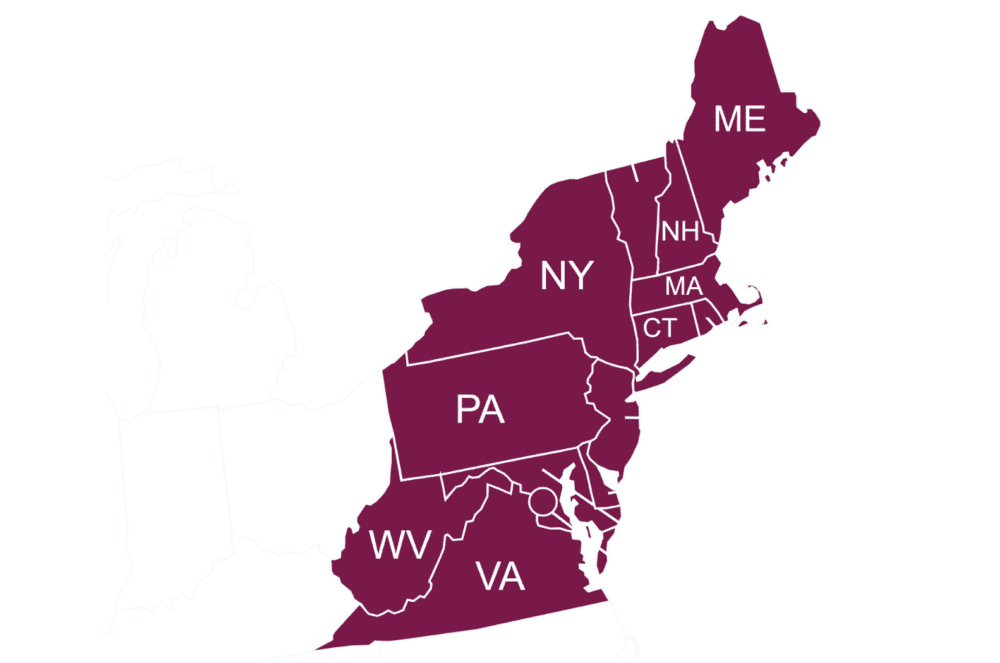Jump to Your State: Alaska | Arizona | California | Colorado | Hawaii | Idaho | Montana | Nevada | New Mexico | Oregon | Utah | Washington
On Monday, March 31, the Federation of State Humanities Councils learned that DOGE (Department of Government Efficiency) is targeting the National Endowment for the Humanities (NEH) with the aim of substantially reducing its staff, cutting the agency’s grant programs, and rescinding grants that have already been awarded. The National Endowment for the Humanities is the only federal agency that funds our nation’s 56 state and jurisdictional humanities councils.
Starting late in the evening on Wednesday, April 2, all humanities councils received emails and letters under the signature of NEH Acting Chair Michael McDonald notifying them that all awarded grants—including their 5-year General Operating Grants and other program-specific awards—were canceled in their entirety, effective April 1.
We asked humanities councils around the country to share what their state will lose if these cuts go through. Here’s how Western states will be negatively impacted by the loss of National Endowment for the Humanities funds and defunding of their state humanities council. While not every state contributed to this article, every state in the West will be affected.
What will be lost in Alaska if NEH funding for humanities councils is cut?
Founded in 1972, the nonprofit Alaska Humanities Forum is the official humanities council of Alaska. It is funded through the National Endowment for the Humanities. Executive Director Kameron Perez-Verdia shared what Alaska will lose if Alaska Humanities Forum’s federal funding is cut.
“Without NEH funding, the following programs would end:
For youth: Alaska has the second-highest rate of adolescent suicide in the country. Over the last decade, more than 2,000 Alaskan students have strengthened their mental health protective factors through council programming (Story Works, Ilakucaraq, Take Wing Alaska, Tengluni).
For educators: Rural Alaska has the highest rates of teacher turnover in the country. Since 2012, council programming has improved retention rates by as much as 50% in 13 school districts (Cross-Cultural Competence).
For workforce development: Alaska’s workforce challenges include building talent pipelines, reducing outmigration, and connecting emerging leaders across sectors. Since 1997, council programming has developed more than 500 emerging business leaders who use their new networks, skills, and perspective to drive economic growth and creative problem-solving across regions (Leadership Anchorage).
Statewide workshops: Alaskans are separated by geography, poor internet connectivity, and a gap in urban-rural understanding. Council programming helps hundreds of veterans, industry leaders and new-to-Alaska professionals connect to their Alaska community and their fellow Alaskans through statewide workshops (Leading Conversations that Build Community, Stories Writing Fellows).
Every $1 of federal funds for the humanities stays in Alaska and is locally matched 3:1. From 2019-2023, the National Endowment for the Humanities (NEH) funded 38 projects in Alaska, totaling $9,639,248.”
What will be lost in Arizona if NEH funding for humanities councils is cut?
Founded in 1974, the nonprofit Arizona Humanities is the official humanities council of Arizona. It is funded through the National Endowment for the Humanities. Executive Director Brenda Thomson shared what Arizona will lose if Arizona Humanities’ federal funding is cut.
“Arizona Humanities relies on NEH funding to provide grants to cultural and educational organizations across the state. Small nonprofit organizations especially rely on these funds to support their projects that impact communities across the state.
One of our grantees is Imprints of Honor (formally known as Veterans Heritage Project). With our grant funding, they connect students with veterans to help honor their legacy, preserve America’s heritage, and develop future leaders. This year we funded the project “Since You Asked: A Veteran Oral History Program,” which helped 205 students in 25 middle and high school chapters conduct 244 oral history interviews with veterans, documenting their stories through video and essay publication. Since the founding of the project in 2004, over 3,000 veteran stories have been preserved in the Library of Congress. 62% of veterans found the interview process healing, and 25% of veterans shared their story for the first time. ‘A terrific experience. So impressed with the young youth who take the time to be a part of this project,’ said Admiral Stanley Arthur, US Navy, Retired. Without NEH funding, we would not be able to provide grants to organizations like Imprints of Honor that provide critical support to our veterans and youth
Federal funding is critical to the programs and grants Arizona Humanities provides to hundreds of cultural and educational organizations that serve Arizonans in towns big and small, and in every county and congressional district. Last year, our programs and grant-funded programs reached over 200,000 people, from kindergarteners to veterans, from metro Phoenix to rural Yavapai County. These free humanities programs not only provided culturally enriching opportunities, but they also boosted local economies and tourism and strengthened community connections. Arizona Humanities ensures that federal funding reaches every corner of our state, and the loss of funding would impact all of Arizona.”
What will be lost in California if NEH funding for humanities councils is cut?
Founded in 1975, the nonprofit California Humanities is the official humanities council of California. It is funded through the National Endowment for the Humanities. President and CEO Rick Noguchi shared what California will lose if California Humanities’ federal funding is cut.
“California Humanities has served California for 50 years, and is the only nonprofit dedicated to advancing the humanities through programs, including grants to nonprofits in every Congressional district. Since 1975, we have connected Californians to ideas and one another to understand our shared heritage and diverse cultures, inspire civic participation, and shape our future.
Without NEH funding, California Humanities cannot provide financial resources to hundreds of California nonprofits that rely on our grant programs, like the Humanities for All Project and Quick grants, to tell their stories and uplift their communities.
Without the support of California Humanities, California museums, libraries, historical societies, and grassroots community organizations would be further challenged to serve their communities, and California residents would be less connected to one another, less civically engaged, would have less trust and empathy, and less hopeful about the future.
With more than 90% of our funds coming from the NEH, California Humanities could not serve the state of 40 million people effectively. Federal funding is critical to advancing the understanding of who we are as Californians and celebrating the extraordinary heritage of the 31st state through our grant programs like the Documentary Film Project, Library Innovation Lab, and Emerging Journalist Fellowships. Federal funds enable California Humanities to showcase the consistent progress toward becoming a perfect Union as we explore the hard work to advance liberty, prosperity, and human flourishing.
The work that California Humanities supports reminds Californians of our heritage, and our strong record of advancing liberty, freedom, and justice for all. Federal funding will enable California Humanities to promote California as a symbol of inspiration and American distinction. With federal support, California Humanities will continue to support programs that inspire young minds, honor the tapestry of American history and innovation, and instill pride in the hearts of all people in California.”
What will be lost in Colorado if NEH funding for humanities councils is cut?
Founded in 1974, the nonprofit Colorado Humanities is the official humanities council of Colorado. It is funded through the National Endowment for the Humanities. Executive Director Margaret A. Coval shared what Colorado will lose if Colorado Humanities’ federal funding is cut.
“NEH funding is the backbone of Colorado Humanities, which is the only organization in the state exclusively dedicated to supporting humanities education for people of all ages statewide. NEH provides the primary source of our operating budget that makes it possible for us to serve rural and urban communities statewide. In FY24 alone, we used federal funds to support 274 free public humanities programs/events in collaboration with 120 program partners, including schools, libraries, museums, colleges, universities, literary groups, and community organizations. Through such partnerships, we reach over 300,000 Coloradans annually, encompassing all age groups.
Should NEH funding be eliminated, the consequences for Colorado would be severe. The following programs, which served 20,778 participants last year, would be forced to shut down, leaving gaps in cultural and historical programming that no other entity is positioned to fill:
Colorado Humanities partners with the Smithsonian Institution to bring its Museum on Main Street (MoMS) traveling exhibition series to small, rural, and remote communities in Colorado. MoMS boosts local economies, community development, civic engagement, and historic preservation by building the capacity of small-town institutions.
Through the Colorado Center for the Book and the Colorado Book Awards over the past 33 years, over 350 books have been awarded and more than 1,100 authors have been recognized, 80% of whom reside outside of the Denver metro area. In 2024, we used federal funds to mobilize over 80 volunteer selectors and judges and drive sales for booksellers.
Rather than aiming for consensus, solutions, or debates, Colorado Humanities’ Community Conversations program focuses on exploration, active listening, and fostering community connections. We have trained 92 facilitators to date and support dozens of Community Conversations across our state.
Congress has long recognized the importance of the humanities for strengthening democracy, fostering critical thinking, and preserving our nation’s history. Without NEH support, our ability to serve the state would be devastated. NEH funding to Colorado Humanities is 21 cents/person. The value to education, cultural preservation, and civic life provided by our resources and opportunities vastly exceeds the investment. No other funding source in Colorado, public or private, could replace us.
In FY24, every NEH dollar granted to Colorado Humanities leveraged $1.50 in support for humanities programs, multiplying the impact of federal investment. Without NEH funding, this financial ecosystem would collapse, drastically reducing not only public access to humanities programming but also financial resources for local economies and cultural sector jobs.”
What will be lost in Hawaii if NEH funding for humanities councils is cut?
Founded in 1973, the nonprofit Hawai‘i Council for the Humanities is the official humanities council of Hawaii. It is funded through the National Endowment for the Humanities. In an email statement, they shared what Hawaii will lose if the Hawai‘i Council for the Humanities loses their federal funding.
“[These cuts] will have a devastating effect on our ability to serve our communities. NEH accounts for 90% of Hawaiʻi Council for the Humanities budget.
These dollars go a long way. Last year, Hawaiʻi Council for the Humanities engaged 33,531 people through 209 events, community grants, and programs like Hawai‘i History Day, Try Think, collaborations like the Hawai‘i State Poet Laureate program and the Lei Pua ‘Ala Queer Histories of Hawai‘i project, partnering with countless local organizations and individuals. On average, humanities councils raise $2 in private investment and in-kind support for every $1 of federal support they receive.”
Read Hawaiʻi Council for the Humanities’ call to action press release here.
Read coverage of these cuts’ impact on Hawaii: Hawai‘i Public Radio, Kaua‘i Now
What will be lost in Idaho if NEH funding for humanities councils is cut?
Founded in 1974, the Idaho Humanities Council is a nonprofit and the official humanities council of Idaho. It is funded through the National Endowment for the Humanities. In a statement on their website, they shared what Idaho will lose if the Idaho Humanities Council’s federal funding is cut.
“Since 1973, the Idaho Humanities Council (IHC)has funded requests amounting to $8,226,572 in grants and awards provided to Idaho organizations and educators. We have supported 587 organizations in every county and reached countless individuals. Since 2020, IHC has hosted a total of 745 live and virtual programs attended by 47,581,935 people. Our grant recipients have conducted 2,617 programs since 2020.
CARES and SHARP funding provided relief and assistance to Idaho organizations facing hardship as a result of the COVID-19 pandemic. IHC traditionally does not provide General Operating support funding for organizations. However, the funds awarded saved or created 235 full time positions, 139 part-time positions, and 293 temporary positions for Idahoans and cultural organizations across the state.
We support the work of K-12 educators across our state with $50,694 in teacher grants awarded, our annual Outstanding Humanities Educator Awards, and our annual summer teacher institute which has served over 150 teachers in 24 counties since 2020.
On average, Idahoans have provided $3.77 of in-kind support for every $1 of federal support they receive from IHC. All these services cost Idahoans less than 40 cents a year. This demonstrates a significant investment from all of you in Idaho’s history and culture. We do not want to let what generations have invested go to waste.”
Read the Idaho Humanities Council’s full statement on these cuts here.
Read coverage of these cuts impact on Idaho: Idaho Capital Sun, Idaho State Journal, KBOI
What will be lost in Montana if NEH funding for humanities councils is cut?
Founded in 1972, the nonprofit Humanities Montana is the official humanities council of Montana. It is funded through the National Endowment for the Humanities. Executive Director Jill Baker shared what Montana will lose if Humanities Montana’s federal funding is cut.
“[Montana will lose programs including] Montana Conversations, Speakers in the Schools, Montana Center for the Book. [Also lost will be Humanities Montana’s] public humanities grantmaking, including Community Project Grants, Public Humanities Fellowships, Film/Video grants, and Mini grants.
The impact of NEH funding in Montana is significant. In FY24, NEH funding reached all 56 counties, through libraries, museums, community and cultural organizations, colleges, and schools. Over 17,000 Montanans showed up for federally funded programs. In all, Humanities Montana reached nearly 530,000 folks through subrecipient programs supported by our grantmaking. These programs offer storytelling, poetry, music and art history, Montana history, and civic engagement, in addition to supporting rural book clubs.
Our programs inspire Montanans, provide lifelong learning opportunities, offer joy, and bring communities together. Humanities Montana supports the fabric and tapestry of our communities through culture and learning. If NEH funding were to disappear, there would be an incredible gap in cultural programming, especially in rural communities.”
What will be lost in Nevada if NEH funding for humanities councils is cut?
Founded in 1971, the nonprofit Nevada Humanities is the official humanities council of Nevada. It is funded through the National Endowment for the Humanities. In an email message to supporters, Executive Director Christina Barr shared what Nevada will lose if Nevada Humanities’ federal funding is cut.
“Nevada Humanities is among the oldest humanities councils in the nation, and has provided vital cultural programming and funding support to local nonprofits in Nevada for over 56 years. Nevada Humanities programs reinforce civic participation, community engagement, historic preservation, tourism infrastructure, and economic development, and articulate a deep sense of place essential for cultivating belonging and community cohesion in Nevada. Nevada Humanities receives approximately 75% of its funding from the NEH, which amounts to roughly $1 million each year.
The termination of NEH grant funding will make it difficult for us to carry out our mission to connect and transform communities by sharing and amplifying the stories, ideas, experiences, and traditions of the diverse people of Nevada. Loss of funding will decimate our ability to serve our state and would mean a pause to our federally funded programs and grants to nonprofit organizations essential to Nevadans across the state.”
What will be lost in New Mexico if NEH funding for humanities councils is cut?
Founded in 1972, the nonprofit New Mexico Humanities Council is the official humanities council of New Mexico. It is funded through the National Endowment for the Humanities. Executive Director Brandon Johnson shared what New Mexico will lose if the New Mexico Humanities Council’s federal funding is cut.
“The following programs would be at risk in New Mexico if federal funding were to be eliminated:
1) Our very popular Speakers Bureau program, which is available to any nonprofit or school around New Mexico to use, and is especially well suited for small organizations that may not otherwise have the budget to host or produce humanities programs.
2) National History Day in New Mexico, which is a year-long academic competition for students in grades 6- 12 that promotes inquiry, research into primary sources, and presentation.
3) Subawards that provide necessary funding to help the state’s museums, libraries, community centers, and schools carry out grassroots projects in history, heritage and other cultural programs.”
Read coverage of these cuts’ impact in New Mexico: Source NM
What will be lost in Oregon if NEH funding for humanities councils is cut?
Founded in 1971, the nonprofit Oregon Humanities is the official humanities council of Oregon. It is funded through the National Endowment for the Humanities. Executive Director Adam Davis shared what Oregon will lose if Oregon Humanities’ federal funding is cut.
“Programs at risk in Oregon include planning and implementation of multiple public conversations, podcast episodes, and other events marking the 250th anniversary of the Declaration of Independence; community conversations all around the state, especially in rural and frontier towns; free college humanities courses for adults living on low incomes; small but incredibly important grants to small and mid-sized social service agencies, community colleges, libraries, and nonprofits—again especially in rural and frontier communities; facilitation training with military veterans and other community members interested in developing their capacity to be of service; fellowships for early-career storytellers—again especially in rural and frontier towns; and plenty more.
Federal funding is critical to Oregon Humanities for four important reasons: first, it helps Oregonians feel connected to people in all the other states and territories, working on a shared national project; second, it makes it possible for our council to distribute funds in small and extremely meaningful amounts to communities that have very limited access to federal, state, or private funding; third, it provides us the flexibility to structure our staff so that we can respond in quick and nimble ways to community needs; fourth, we leverage our NEH support to raise significant funding from individuals, foundations, and state government in Oregon (and the NEH support is crucial to all this other fundraising).”
Read Oregon Humanities’ statement on the cuts.
Read coverage of these cuts’ impact in Oregon: The Oregonian, Oregon Public Broadcasting
What will be lost in Utah if NEH funding for humanities councils is cut?
Founded in 1971, the nonprofit Utah Humanities is the official humanities council of Utah. It is funded through the National Endowment for the Humanities. Executive Director Jodi Graham shared what Utah will lose if Utah Humanities’ federal funding is cut.
“Utah Humanities is the only nonprofit in Utah solely dedicated to providing free public humanities programming throughout the state. The loss of NEH funding would decimate our ability to serve communities across the state, eliminating programs that are essential to Utah’s cultural infrastructure. Without NEH, vital grant funding would disappear, stripping organizations—large and small—of the resources they need to provide grass-roots humanities programming to their communities. While there are multiple options for funding arts projects, the public humanities would have few to no options for support.
We would no longer be able to offer critical capacity-building training for museums, which serve as cultural anchors in their communities, jeopardizing their ability to preserve and share local history. The Museum on Main Street program would end after 30 years of providing rural Utahns with nationally recognized. Community Conversations, which help Utahns connect across differences and foster civic dialogue, would cease. Educational programming that empowers first-generation college students, young and old, would no longer be available, closing pathways to opportunity. The Utah Humanities Book Festival, a Utah tradition every October since 1997, would be lost. Humanities in the Wild, which connects literature, science, and Utah’s breathtaking landscapes, would no longer inspire audiences to engage with their environment. The Beehive Archive radio program, which shares two-minute glimpses into Utah’s rich history, would go silent. Utah would lose its place on the national stage, as we would no longer be able to participate in the National Book Festival at the Library of Congress, and would no longer be able to support National History Day Utah.
This is not just about funding—it’s about the survival of public humanities in Utah. Without NEH support, Utahns would lose access to experiences that educate, inspire, and bring communities together. The ripple effects would be felt statewide.
Everything we do at Utah Humanities is done in partnership. A loss of NEH funding wouldn’t just impact us—it would have a devastating ripple effect across the state. As a core member of Utah’s cultural leadership, we work with over a hundred partners each year, from state agencies and universities to rural libraries and small museums run entirely by volunteers. These partnerships span every region of Utah, ensuring that communities large and small have access to free humanities programs.
Without this federal support, Utah’s cultural infrastructure would be significantly weakened. The loss of NEH funding would also silence Utah’s voice on the national stage. Federal investment in Utah Humanities ensures that every Utah community—urban and rural, large and small—has access to free, high-quality humanities programming. Without it, we would be forced to scale back or eliminate programs that have brought people together, strengthened communities, and enriched Utah’s cultural landscape for 50 years. NEH funding is not just important—it is essential.”
What will be lost in Washington if NEH funding for humanities councils is cut?
Founded in 1973, the nonprofit Humanities Washington is the official humanities council of Washington state. It is funded through the National Endowment for the Humanities. CEO/Executive Director Julie Ziegler shared what Washington will lose if Humanities Washington’s federal funding is cut.
“[Washington will lose] opportunities to build connections, creativity, and community through free programs exploring language, literature, the arts, history, and philosophy.
More than 25,000 people were served in Washington State in 2024 thanks to NEH funding. This investment seeded positive futures for thousands of kids through family reading programs; enabled the most rural communities to receive thought-provoking, high-quality speakers, and highlighted the rich culture of our communities.
Federal funding generates additional local investment in communities, ensures resources can be spread fairly to even the most rural areas, and provides important interconnection between state programs.




